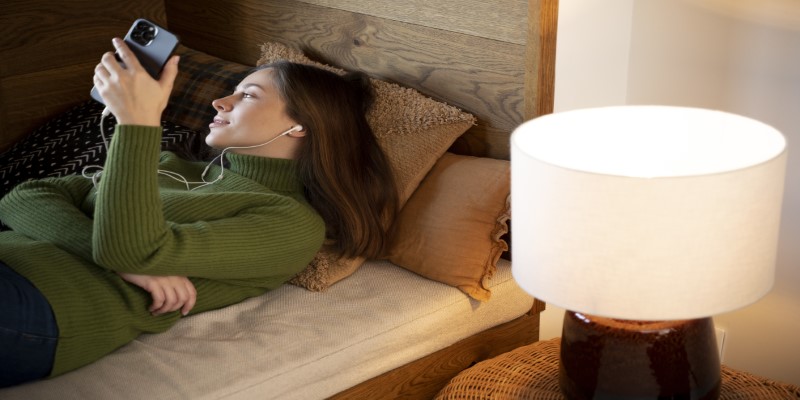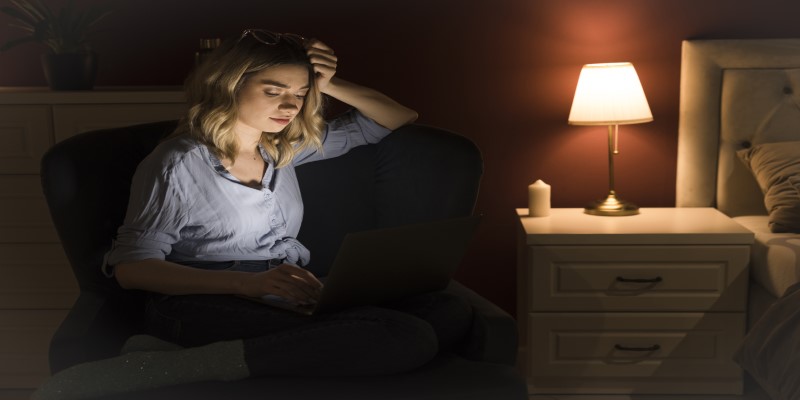When youre traveling, getting quality rest can be challenging, especially if youre staying in a hotel. Unfamiliar surroundings, different noises, and varying comfort levels can disrupt your sleep, making it hard to wake up refreshed. Whether youre on a business trip, vacation, or just passing through, prioritizing a good nights sleep is essential for your well-being and productivity.
This article provides practical tips to help you maximize your chances of catching quality Zs in a hotel room, ensuring you stay refreshed and ready for the day ahead.
How to Get a Good Nights Sleep in a Hotel Room: Practical Tips and Tricks
Traveling can be exhausting, and getting a good nights sleep in a hotel room is crucial. Here are some practical tips and tricks to help you sleep well:
Choose the Right Hotel
Your journey to a restful night begins with selecting the right hotel. While it might be tempting to book the cheapest option, investing a bit more in a hotel that prioritizes comfort can make a significant difference. Look for hotels with high ratings for cleanliness and comfort.
Many hotels offer special amenities aimed at enhancing sleep quality, such as premium mattresses, blackout curtains, and soundproofing. Reading reviews from previous guests can provide insights into the hotel's sleep environment. A hotel that caters to a restful stay can significantly improve your sleep quality while traveling.
Prepare Your Room for Sleep
Once youve checked into your hotel, take a moment to prepare your room for sleep. Start by adjusting the rooms temperature to a comfortable level. Most people sleep best in a cool room, so setting the thermostat to a lower temperature can help. If you have control over the rooms air conditioning or heating, use it to create a comfortable environment.
Next, check the bed and pillows. If the pillows are too fluffy or too flat, request additional pillows from the hotel staff. Many hotels offer a pillow menu, allowing you to choose the type that suits you best. A good pillow can make a huge difference in how well you sleep.
Control the Light and Noise
Light and noise can be major disruptors of sleep, especially in a hotel where youre not familiar with the surroundings. To combat this, make use of blackout curtains if theyre available. If the room doesnt have them, you can use a sleep mask to block out light.

Noise can be more challenging to manage. If youre sensitive to noise, consider bringing earplugs or a white noise machine. Some people find that playing soothing sounds or a gentle fan can help drown out background noise. If your room is near a busy street or has thin walls, these tools can be lifesavers.
Establish a Sleep Routine
Even in a hotel, maintaining your usual sleep routine is crucial. Aim to go to bed and wake up at the same time every day, as this consistency regulates your internal clock, making it easier to fall asleep and wake up naturally. Stick to pre-sleep rituals like reading, meditating, or listening to calming music to signal to your body that its time to sleep.
Avoid heavy meals, caffeine, and alcohol before bed, as they can disrupt your sleep cycle. This disciplined approach helps ensure restful nights, even when you're away from home.
Create a Relaxing Environment
A relaxing environment can ease the transition from being awake to falling asleep. Consider bringing along a few items that help you relax, such as a favorite blanket, a soothing essential oil, or a book. If youre someone who likes to listen to calming music or guided meditations, having a portable speaker or headphones can be helpful.
Before you head to bed, take some time to unwind. A warm bath or shower can help relax your muscles and signal to your body that its time to wind down. Avoid screenslike your phone, tablet, or TVat least an hour before bed, as the blue light emitted can interfere with your bodys natural sleep-wake cycle.
Check for Distractions
Ensure your hotel room is free from potential distractions to optimize your sleep quality. Begin by turning off any electronics that might make noise during the night, such as alarms, TVs, or phones. If your room has a mini-fridge or other noisy equipment, consider unplugging it or moving it farther from the bed.
Additionally, close doors to reduce hallway noise and hang the "Do Not Disturb" sign to prevent interruptions. Even small adjustments can significantly improve your sleep environment, helping you rest more soundly and wake up refreshed.
Mind Your Comfort
Your overall comfort plays a significant role in how well you sleep. If the mattress feels too firm or too soft, ask the hotel staff if they have mattress toppers or other options that can enhance comfort. Many hotels are willing to accommodate specific requests if you let them know in advance.
If youre staying for more than one night, request daily housekeeping to ensure that the bed is fresh and comfortable each day. Clean sheets and a tidy room can make your sleeping environment more inviting.
Handle Stress and Anxiety
Traveling can sometimes bring about stress or anxiety, which can affect your sleep. If youre feeling anxious, try incorporating relaxation techniques into your nightly routine. Deep breathing exercises, such as inhaling deeply through your nose and exhaling slowly through your mouth, can help calm your mind.

Meditation apps can guide you through mindfulness sessions to ease stress. Writing in a journal can also be therapeutic, allowing you to express your thoughts and worries. For significant stress, consider speaking with a healthcare professional who can provide tailored support and strategies.
Utilize Hotel Amenities
Many hotels offer amenities designed to improve sleep quality. Check if your hotel provides features like sleep menus, offering a variety of pillow types or aromatherapy options. Relaxation areas, such as lounges with comfortable seating and calming dcor, can help you unwind before bed. Some hotels offer specialized bedding to enhance comfort.
Additionally, look for sleep therapy kits that might include items like sleep masks and earplugs. Some establishments even offer bedtime yoga classes or guided meditation sessions. Taking advantage of these amenities can significantly enhance your sleep experience.
Conclusion
Getting a good nights sleep in a hotel is about creating a comfortable and calming environment, even when youre away from home. By choosing the right hotel, preparing your room, controlling light and noise, and sticking to a sleep routine, you can enhance your chances of restful sleep.
Dont forget to make use of hotel amenities and bring along items that help you relax. With these tips, youll be well on your way to enjoying peaceful nights, no matter where your travels take you.




